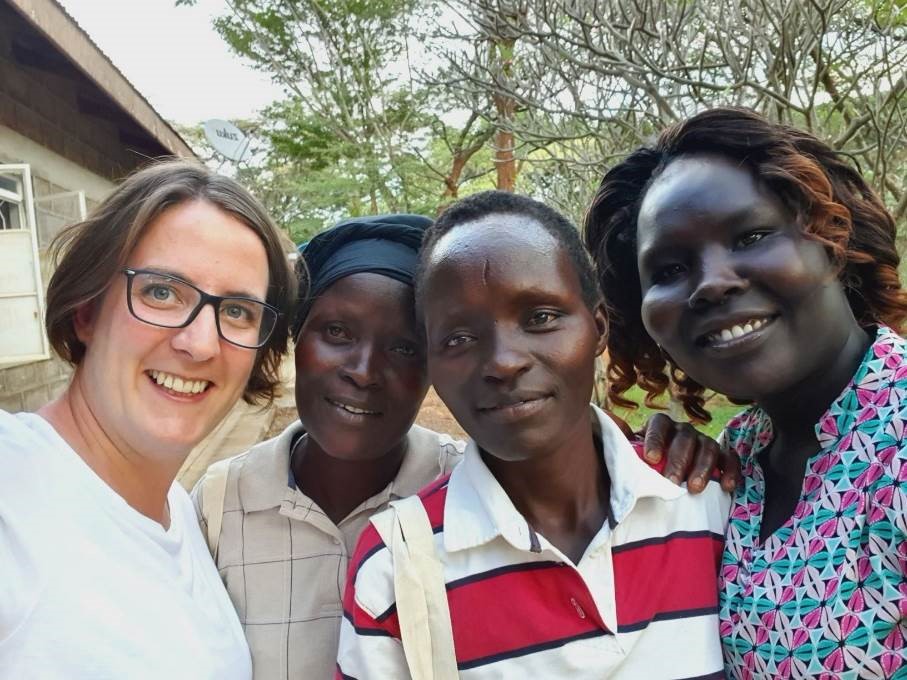
Seven years ago, our Programme Director Astrid Fairclough was seconded to the then Department of Health to lead the Female Genital Mutilation (FGM) programme. Working closely with NHS Digital, the team delivered world leading statistics about FGM and the FGM Information Sharing System. Last year, with the support of a Winston Churchill Memorial Trust fellowship, Astrid travelled to Kenya, Egypt, Sierra Leone and Australia to look at the personal and emotional side to FGM. The report was published last week, and Astrid is now embarking on the next stage of her work – sharing her findings with colleagues across the NHS and those working to End FGM.
I’ve been lucky enough to have made a career in the NHS, but never when I joined my local PCT straight after school did I imagine that some 15 years later, my employer would supported me to complete an international research Fellowship. But last year, I travelled to Kenya, Egypt, Sierra Leone and then Australia, and I have just published my report recommending how we can improve how we tackle female genital mutilation (FGM) in the UK.
Within this article, I’d like to both share a little about the research and also share about the Winston Churchill Memorial Trust, the remarkable organisation who gave me a grant to complete this opportunity.
FGM is a violent manifestation of gender inequality, where girls are cut as a form of control. There are so many reasons given to justify it, it happens in so many communities across the world, not just in Africa, at different ages, in varied ways, but ultimately there is no reason to cut a child just to enforce and demonstrate a gender inequality.
In the UK, there are families living in every local authority area for whom FGM is (or was) part of their family and community background. It is illegal, but young girls have been cut in the UK.
I’ve worked for the NHS in various projects for my whole career, and in 2013 I was fortunate to be seconded to the Department of Health to lead the FGM Prevention programme working closely with NHS Digital. We delivered world-leading statistics about FGM and the FGM Information Sharing system.
In every country I visited, I heard about how this work is globally admired. I think we should be rightly proud; we have excelled at introducing systems and structures to improve the NHS response to FGM. Now, however, the NHS faces a different challenge. Those who have been involved in the work in recent years are very tired, the work has been difficult and we are not sharing expertise. The effort is not sustainable, which leads to serious risks that the work may not be effective. And, we are at risk of not dealing with the personal and emotional side to FGM, having focused so much on having systems in place to help us know about it. When visiting End FGM projects overseas, it was these areas I was keen to explore.
Another key theme in the research is that, with the NHS being made up of the most beautifully diverse workforce, we need to think carefully about whether the health and care professionals (and other staff) for whom FGM is part of their family and/or community background are adversely impacted at all by the expectations we have placed upon them. I met nurses in Kenya who shared very personal accounts of how they support many women and are brilliantly placed to do this, but they also struggle very much with their role in their community, the feelings this causes.
If you are interested to hear more about the challenges, both the full report and a summary version can be found here. I am also continuing to blog.
Now to the amazing Winston Churchill Memorial Trust who runs the Churchill Fellowships, a unique programme of overseas research grants. These support UK citizens from all parts of society to travel the world in search of innovative solutions for today’s most pressing problems.
Every year they award up to 150 Fellowships. The application process has been suspended this year, due to the travel restrictions, but I know that they are considering how and when they can return. The grants fund individuals to travel for 4-8 weeks, anywhere in the world.
Having just published my report, I am now embarking on the next phase of my Fellowship where I share my learning with colleagues across the NHS and others involved in the work to End FGM.
These are not academic research grants. They are practical inquiries into real-world issues that the Fellows have encountered in their daily lives. They cover eight universal themes in society: Arts and culture, Community and citizenship, Economy and enterprise, Education and skills, Environment and resources, Health and wellbeing, Governance and public provision, Science and technology.
Any UK adult citizen can apply, regardless of qualifications, age or background. Every year, NHS employees are awarded Fellowships. They are chosen not for their past achievements, but for the power of their ideas and their potential to be change-makers. Would you like to apply?
At the heart of all this is a simple but enduring concept. WCMT empower individuals to learn from the world, for the benefit of the UK. Their view, which I share, is that today this idea is more valuable than ever.


